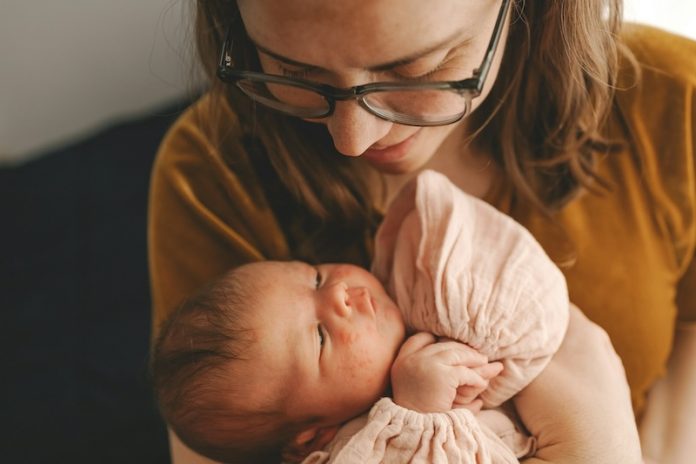
A new study suggests that women who have their first child before age 26 or after age 35 may have a higher risk of developing rheumatoid arthritis later in life. The research was published on January 16 in the journal PLOS ONE.
The study was conducted by researchers from the First Teaching Hospital of Tianjin University of Traditional Chinese Medicine in China. They analyzed data from the U.S. National Health and Nutrition Examination Survey, covering 7,449 women between 2011 and 2020.
Their goal was to explore whether the age at which a woman gives birth to her first child (known as “age at first birth” or AFB) is linked to the likelihood of developing rheumatoid arthritis, a chronic condition that causes pain and swelling in the joints.
Key Findings
The researchers compared women who had their first child at different ages and found that those who gave birth before 26 or after 35 had a greater risk of developing rheumatoid arthritis. The lowest risk was observed in women who had their first child between the ages of 30 and 32.
Compared to this reference group, the risk of rheumatoid arthritis was:
- 4 times higher for women who had their first child before age 18
- 2.9 times higher for those aged 18 to 20
- 3 times higher for those aged 21 to 23
- 3.18 times higher for those aged 24 to 26
- 3.36 times higher for those older than 35 at first birth
However, there was no significant difference in rheumatoid arthritis risk for women who had their first child between ages 27 to 29 or 33 to 35.
What This Means
The findings suggest that both very young mothers and those who delay childbirth past 35 may face a higher risk of rheumatoid arthritis. Scientists are still exploring why this happens, but it could be related to hormonal changes, the immune system, or other factors affecting the body during pregnancy and early motherhood.
The authors of the study suggest that health officials and doctors should pay more attention to women in these age groups when screening for rheumatoid arthritis and planning preventive care.
Looking Ahead
More research is needed to fully understand why age at first birth influences rheumatoid arthritis risk. However, these findings highlight the importance of monitoring joint health in women who give birth at younger or older ages.
If you are in one of these groups, maintaining a healthy lifestyle and discussing any joint pain with your doctor could be helpful in early detection and prevention.
If you care about pain, please read studies about vitamin K deficiency linked to hip fractures in old people, and these vitamins could help reduce bone fracture risk.
For more information about wellness, please see recent studies that Krill oil could improve muscle health in older people, and eating yogurt linked to lower frailty in older people.
The research findings can be found in PLOS ONE.
Copyright © 2025 Knowridge Science Report. All rights reserved.



